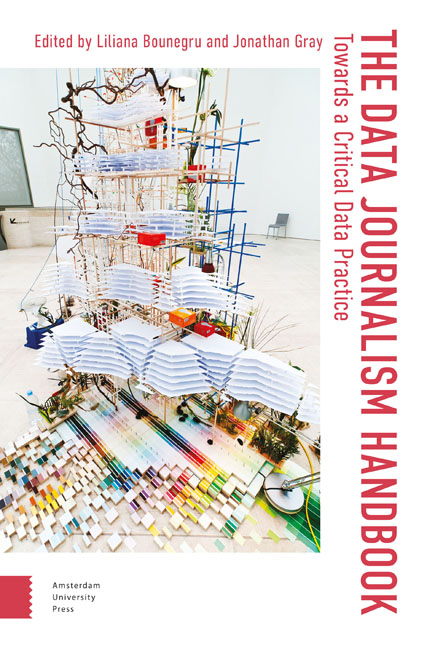36 - The #ddj Hashtag on Twitter
Summary
Abstract
How we used the social network analysis and visualization package NodeXL to examine what the global data journalism community tweets about.
Keywords: #ddj, Twitter, social network analysis, data journalism, social media, data analysis
Picking a single term to track the data journalism field is not easy. Data journalists use a myriad of hashtags in connection with their work, such as #datajournalism, #ddj, #dataviz, #infographics, and #data. When the Global Investigative Journalism Network (GIJN)—an international association of investigative journalism organizations that supports the training and sharing of information among investigative and data journalists—first started to report on conversations around data journalism on Twitter six years ago, the most popular hashtag appeared to be #ddj (data-driven journalism).
The term “data-driven journalism” itself is controversial as it can be argued that journalism is not driven by data; data merely informs, or is a tool used for journalism. Data consists of structured facts and statistics that require journalists to filter, analyze and discover patterns in order to produce stories. Just as one would not call a profile piece “interview-driven journalism” or an article based on public documents “document-driven journalism,” great data journalism stories use data as only one of their components.
The Role of #ddj
Aside from these considerations, the widespread use of the #ddj hashtag among data journalism communities has made it a prominent resource for sharing projects and activities around the world. Data journalists use the hashtag to promote their work and broadcast it to wider international audiences.
The hashtag also helps facilitate discussions on social media, where members of the data journalism community can search, discover and share content using the hashtag. Discussions embracing the #ddj hashtag range from election forecasting and misinterpretation of probability graphs, to data ethics and holding artificial intelligence to account.
The Birth of Top 10 #ddj
GIJN's weekly Top 10 #ddj series started in January 2014 when one of us first tweeted a #ddj network graph (Smith, 2014). The graph, which mapped tweets mentioning the hashtag #ddj, including replies to those tweets, was created using NodeXL, a social network analysis and visualization package that builds on the Excel spreadsheet software.
- Type
- Chapter
- Information
- The Data Journalism HandbookTowards A Critical Data Practice, pp. 267 - 273Publisher: Amsterdam University PressPrint publication year: 2021

